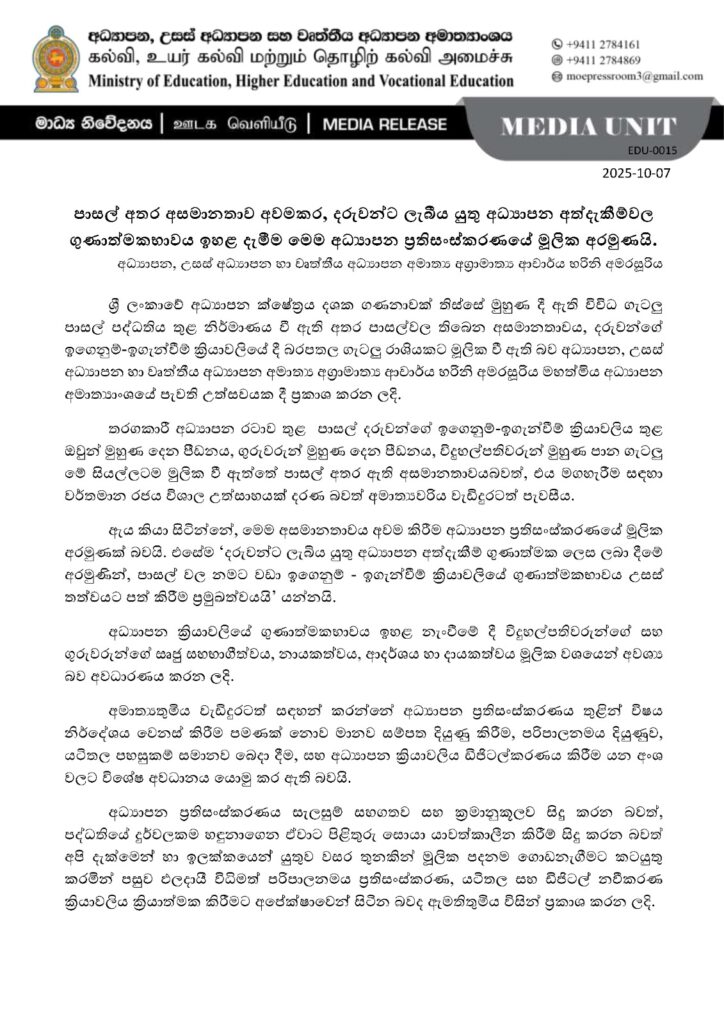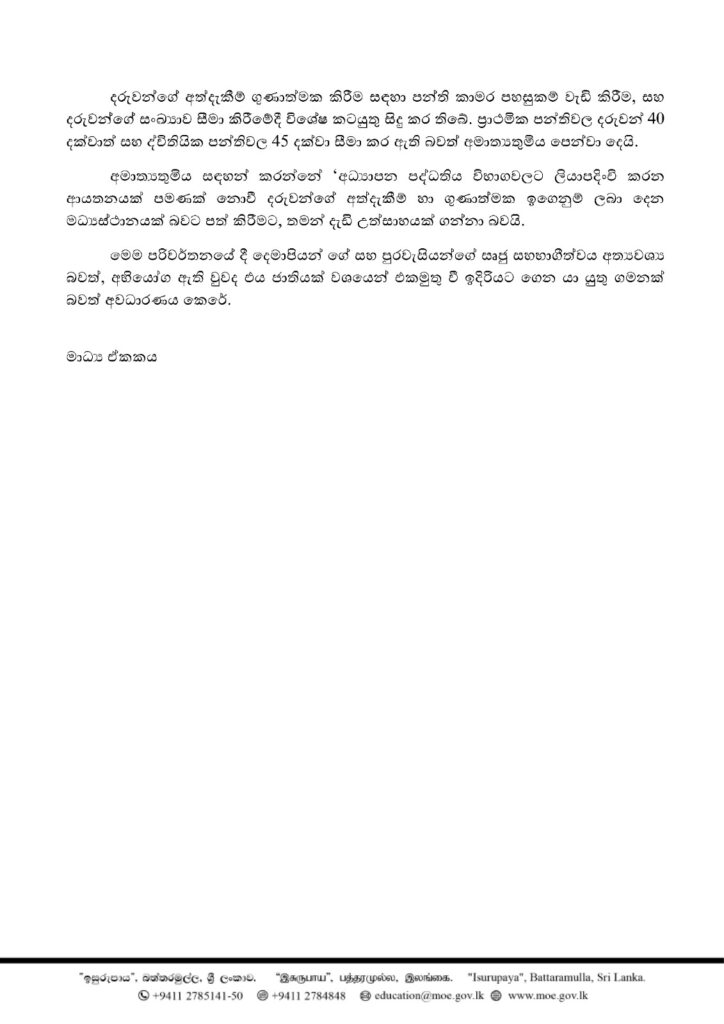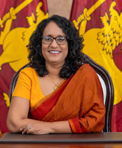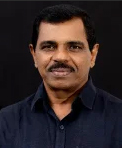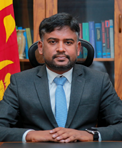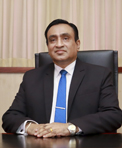– Minister of Education, Higher Education, and Vocational Education, Prime Minister Dr. Harini Amarasuriya
For several decades, various issues that have emerged within Sri Lanka’s school system have created numerous challenges in the field of education. The inequalities among schools have become a key factor leading to serious problems in the teaching and learning process of students, stated the Prime Minister and Minister of Education, Higher Education, and Vocational Education, Dr. Harini Amarasuriya, at a ceremony held at the Ministry of Education.
The Minister further said that the competitive education system has caused stress among students in their learning process, pressure on teachers in their teaching process, and challenges faced by principals in school management — all primarily stemming from inequalities among schools. She also stated that the present government is making significant efforts to eliminate these disparities.
She emphasized that reducing these inequalities is one of the fundamental aims of the educational reforms. Furthermore, the priority is to enhance the quality of the teaching and learning process rather than the reputation of a school name, in order to ensure that children receive the quality educational experiences they deserve.
It was highlighted that the active participation, leadership, example, and contribution of principals and teachers are essential for improving the quality of the educational process. The Minister also noted that the educational reform process focuses not only on revising curricula but also on developing human resources, improving administrative efficiency, distributing infrastructure facilities equitably, and digitalizing the educational process.
She further stated that the educational reforms are being implemented systematically and in a planned manner, identifying weaknesses within the system and taking steps to modernize and update it. The goal is to establish the fundamental framework within three years based on a clear vision and objectives, followed by effective administrative reforms and infrastructure and digital modernization initiatives.
To improve children’s learning experiences, steps have already been taken to increase classroom facilities and to limit the number of students per class, with primary classes limited to 40 students and secondary classes to 45 students, according to the Minister.
The Minister added that she is determined to transform the education system from being merely an institution registering students for examinations into a center that provides meaningful experiences and quality learning.
It was further emphasized that the direct involvement of parents and citizens is vital in this transformation, and that despite challenges, it is a journey that must be undertaken together as a united nation.
Media Unit
